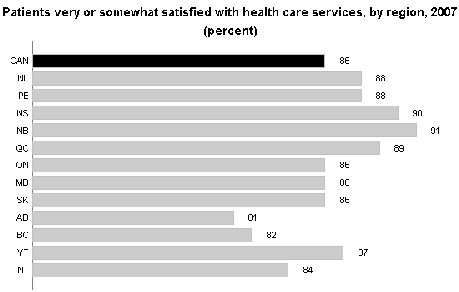For my American friends and readers, we’re having a provincial election here in Ontario. Since health care is deemed a provincial responsibility (though funded extensively by the federal government), it’s naturally a hot topic of discussion. At the televised leader’s debate a couple of days ago, New Democrat leader Andrea Horwath managed to step in it, just a little, by suggesting Emergency Department staff at Hamilton General Hospital treated her son inappropriately or even incompetently after he injured his elbow skateboarding. ”He went to an emergency ward in my community,” she said. “They didn’t do anything for his fractured elbow. They sent him home, said it doesn’t really need anything, they can’t afford a cast, and go home and somebody will help you figure out how to put a sling on it.”
Unlike St. Joseph’s Health Care Centre in Toronto, which took a pasting in the Toronto media after an elderly man made allegations of abuse, Hamilton General pushed back:
Despite her clarification Wednesday, some hospital staffers felt Horwath’s comments were unfair, said Jeff Vallentin spokesperson for Hamilton Health Sciences.
“All I know is there are lots of folks (working here) concerned about the comments … some feel it’s an unfair representation of the hospital.”
He added that no one has made an official complaint about Leonetti’s visit to the ER.
[SNIP]
The hospital’s chief of emergency medicine would not speak on the specifics of the Horwath case, but said it is common for elbow fractures not to be put in a cast.
Dr. Bill Krizmanich works in emergency at McMaster University and said there are many degrees of fracture, from a hairline to a full-out break, and each is treated differently. The elbow is a very complicated joint because of its range of movement and the treatment depends on the severity of the injury.
The most common elbow injury from skateboarding is a radial head fracture, which normally heals permanently in about four to six weeks with very few future problems.
“In those, we don’t splint and we don’t cast. It heals on its own … (and) early mobilization of joints is helpful.”
At the end of it all, Andrea Horwath walked backed her comments, somewhat: her intent, she claims, wasn’t to attack staff but to highlight systemic problems. “The example,” she says, “was meant to illustrate that people are disappointed with the service they’re getting at the hospitals. In the event, it turns it turns out Horwath was not even with her 18-year-old son during the visit; her retelling of the story was at best second-hand — and 18-year-olds are not known for taking direction well.
I guess, to be charitable, Horwath was trying to personalize a complex issue, i.e. validating through personal anecdote reports of poor care at Ontario hospitals. Unfortunately, the leader of the party of the Left managed to fall into the trap of repeating the same tired meme (ironically!), beloved of right-wing politicians and pundits that Canadian public health care is The Pit From Whence Few Return Alive.
We all have stories of poor treatment by health care institutions, and I am sure this is a commonality of both Canadian and American health care systems. My own story relates to being seen in the ED of Belleville General (I was passing through) presenting with sudden onset of severe headache. I was treated badly by the Emergency physician who plainly thought I was some drug-seeking tourist from The Big Smoke. (The nursing staff, I hasten to add, were superb and professional.)
But anecdotal evidence, while having the power of making the complex real and personal, is also the worst kind of evidence. It’s pretty difficult to generalize conclusions from anecdotes. Even if Horwath’s story is true and my story is true, you can’t point to a larger conclusion, as Horwath does, that “people disappointed with the service they’re getting at the hospitals.” It’s logically faulty. In any case, the larger point it isn’t actually true, and illustrates nicely the problem of using anecdotal evidence for anything: more often then not you’re going to be caught with your pants down. Statistics Canada has the data.

Source: Statistics Canada. Patient satisfaction with any health care services received in past 12 months, by sex, household population aged 15 and over, Canada, provinces and territories, occasional (CANSIM Table 105-4080). Ottawa: Statistics Canada, 2008
In Ontario, 86% of people were either very or somewhat satisfied with the health care received. Is there room for improvement? Absolutely, and I am a bit worried about the gap between “somewhat” and “very”, which the StatsCan study does not elaborate upon. If we’re going to talk reasonably about health care reform, let us at least speak rationally, and use evidence and best practices. Bashing health care agencies and professionals isn’t helpful, especially when (I suspect) large number of health care professionals are sympathetic to the New Democrat message.
Advertisement Eco World Content From Across The Internet.
